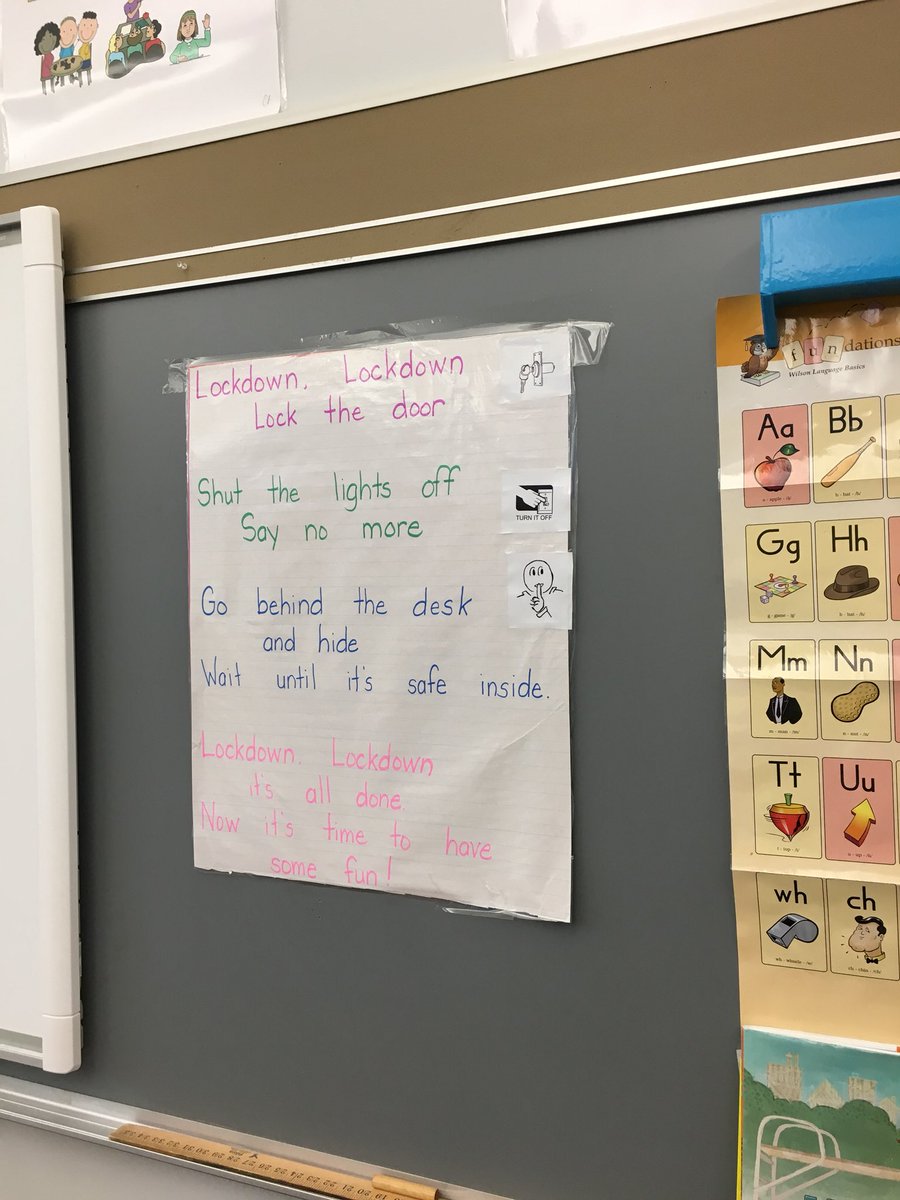Ed News Roundup
Our favorite secretary of Education, Betsy DeVos, had this interchange with Senator Patrick Leahy of Vermont about the new taskforce on school safety. Note her kinda creepy smile thru most of it. From the AP:
.@SenatorLeahy: "Will your commission look at the role of fire arms as it relates to gun violence in our schools?"
@BetsyDeVosED: “That is not part of the commission’s charge, per sey.”
Sen. Leahy: "I see…So, you're studying gun violence but not considering the role of guns.
David Hogg@davidhogg111
Finally, in a great example of how we got to having Trump as president, this via Twitter:

.
Sen. Leahy: "I see…So, you're studying gun violence but not considering the role of guns.
When the commission was established, one of the areas of focus outlined in a White House statement was "age restrictions for certain firearm purchases."From Twitter:
DeVos has said the commission will report its findings by year's end, but some critics have said the commission needs to act with more urgency.
David Hogg@davidhogg111
David Hogg Retweeted Mother Jones
.@BetsyDeVosED as you are secretary of education I respect your decision. However, as a citizen and survivor of a school shooting, I completely disagree and feel that you must study the role of guns in school violence if we want to stop school shootings.
On the same topic, this is to the tune of "Twinkle, Twinkle, Little Star" and appeared in a kindergarten teacher's classroom in the Boston area:
Also on DeVos, she's gone on a "listening tour" to Europe. Via Politico:
Education Secretary Betsy DeVos kicks off a 10-day trip to Europe today that will take her to Switzerland, the Netherlands and the U.K. The trip is billed as a “learning tour” during which she will examine apprenticeship programs, vocational schools and the U.K.’s decentralized, K-12 education system, according to the department’s schedule.
Interesting article from the NY Times on admitting students with lower academic scores to better NYC schools.
The plan is unusual because it focuses explicitly on low-performing students, and seeks to achieve “academic diversity” across the district’s middle schools. School desegregation efforts around the city have mostly been centered on students who qualify for free or reduced-price school lunches, a widely accepted measure of poverty, which has generally been correlated with race in the city. For instance, six of the seven middle schools taking part this year in a diversity initiative by the city Department of Education set aside between 10 percent and 62 percent of their seats for applicants who qualify for free and reduced-price lunches; one of the schools also considers “a diverse range of learners” in the admissions process.The idea, proponents of the District 3 plan say, is to provide opportunities for more students, including those at the very bottom who are not only poor, but also failing, and may need the most help. And they say that it would prevent the top middle schools from simply siphoning off poor students who earn high test scores and grades, and would instead redistribute both high-performing and low-performing students among more schools.The focus on low test scores runs counter to the city’s high-stakes testing culture, where admission to everything from gifted-and-talented kindergarten classes to the prestigious specialized high schools is gained by top scores. It has drawn criticism from some white and affluent parents — captured in a viral video — who believe that it is unfair when the top middle schools do not have enough seats for all the qualified students as it is, and say that it could water down instruction and lower the quality of education. Other parents see it as a superficial stab at a complicated problem, while still others say that it does not go far enough to help students in struggling schools.Even parents who support the broader goal of desegregation have raised concerns about placing students who score a 1 or 2 — the bottom half on a scale of 1 to 4 — into rigorous middle schools without adequate preparation and support.
You should watch that viral video - parents going wild over this idea.
From Diane Ravitch, Gerald Coles: Billionaires Want Poor Children’s Brains to Work Better
The history of “scientific brain-based” pedagogy for poor children has invariably been a dodge from addressing obvious social-class influences. In its newest iteration– improve poor children’s executive functioning–billionaires Gates and Zuckerberg will gladly put some cash into promoting a new neurological fix for poor children, thereby helping (and hoping) to divert the thinking of education policy-makers, teachers and parents. Never mind that over three years ago, a review of research on executive functioning and academic achievement failed to find “compelling evidence that a causal association between the two exists.” What’s critical for these billionaires and the class they represent is that the nation continues to concoct policy that does not deplete the wealth of the rich and helps explain away continued poverty. Just because research on improving executive functioning in poor children has not been found to be a solution for their educational underachievement, doesn’t mean it can’t be.
“Most people looking at this reasoning would likely think, “If executive functioning is poorer in poor children, why not eliminate the apparent cause of the deficiency, i.e., poverty?” Not so for the billionaires. For them, the “adverse life situations” of poor students are the can’t-be-changed-givens. Neither can instructional conditions that cost more money provide an answer. For example, considerable research on small class size teaching has demonstrated its substantially positive academic benefits, especially for poor children, from grammar school through high school and college. Gates claims to know about this instructional reform, but money-minded as he is, he insists these findings amount to nothing more than a “belief” whose worst impact has been to drive “school budget increases for more than 50 years.”It is amusing to see Gates complain when the amount that Lakeside gets for educating their students is very high.
Finally, in a great example of how we got to having Trump as president, this via Twitter:
This past weekend, I went to a tourist attraction in Virginia depicting live dinosaurs being reanimated during the civil war and the Union’s attempts to use them as “weapons of mass destruction” against the South. Above all that, this is the wildest most improbable thing I saw.


Comments